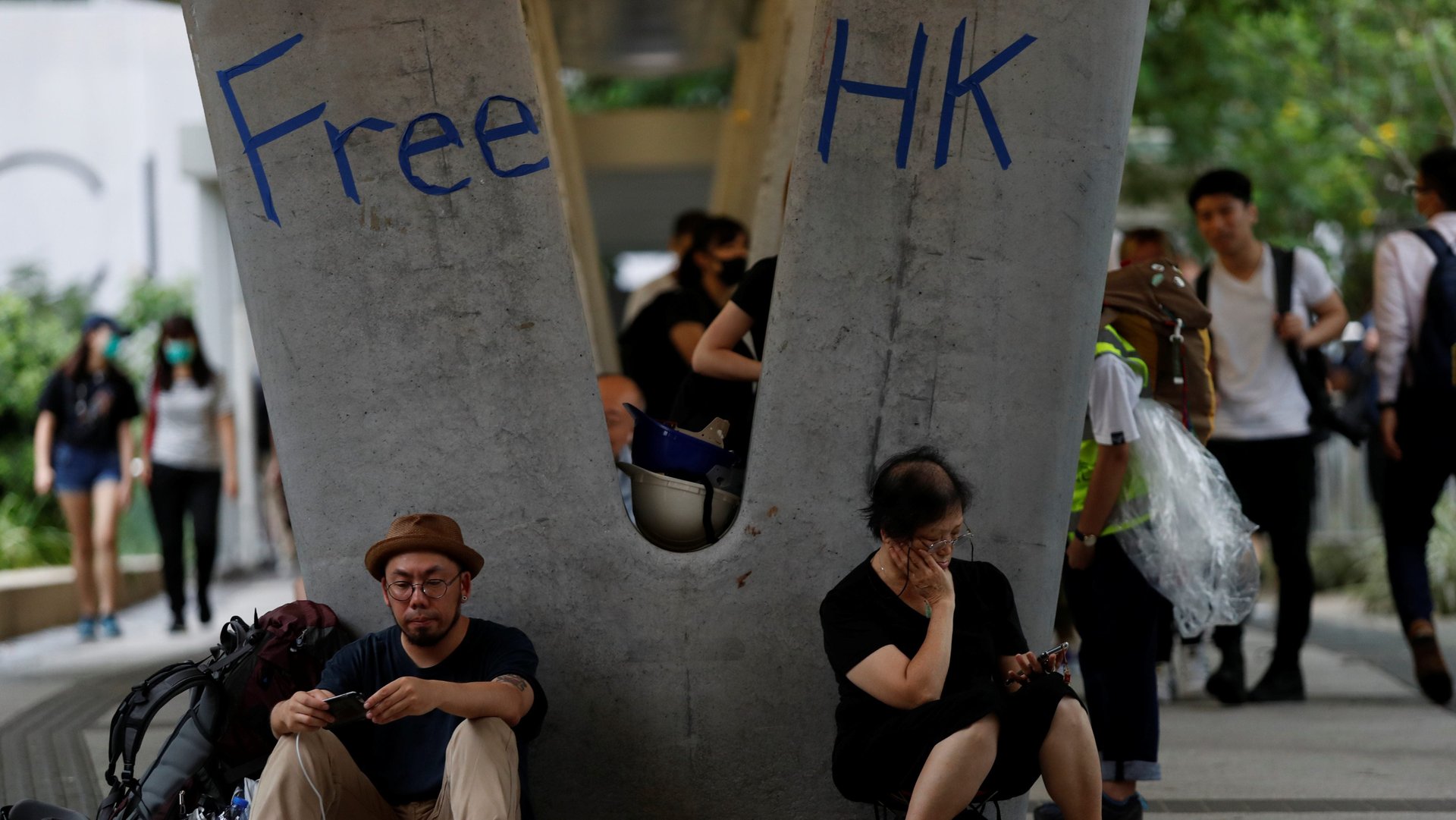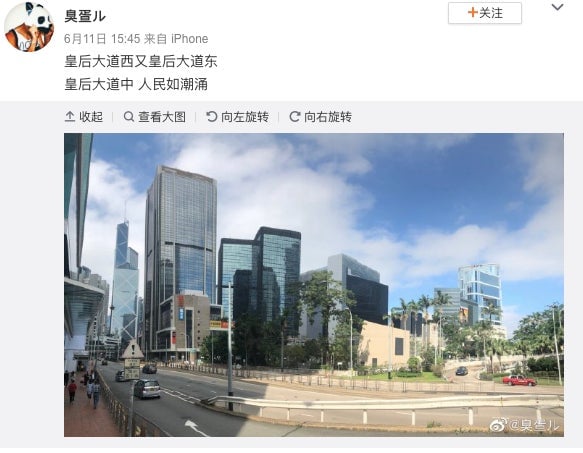People in China are using song lyrics as code to voice support for Hong Kong
Even as tens of thousands of Hong Kongers this week took to the streets to protest against a controversial overhaul of the city’s extradition law, people in mainland China were largely left in the dark about what was happening across the border thanks to severe censorship.


Even as tens of thousands of Hong Kongers this week took to the streets to protest against a controversial overhaul of the city’s extradition law, people in mainland China were largely left in the dark about what was happening across the border thanks to severe censorship.
On messaging app WeChat some users said that they weren’t able to see photos of the protests in Hong Kong sent by other users. A search for “Hong Kong” on social network Weibo (link in Chinese) only returned state-approved news of Hong Kong police putting down “thugs” in a “riot.” A search for “Hong Kong add oil”—a commonly used Chinese phrase used to express encouragement—brings up no results.
Still, internet users are eager to find out more about what’s happening in Hong Kong, with searches for the city surging in China in recent days, Reuters reported. Some have turned to more creative ways to skirt censorship and post their support for the city’s protests, by turning to classic songs about Hong Kong.
One of these is Pearl of the Orient, a song written by Taiwanese songwriter Lo Ta-yu in 1986 in praise of the city’s unique Chinese identity as a British colony. The song was first made available in Cantonese—the vernacular of Hong Kong and southern China—and a Mandarin version was later released. The term “Pearl of the Orient” is often used as a moniker for the city.
Internet users in China began using the term to refer to Hong Kong in posts, and shared clips and lyrics of the song. “Pearl of the Orient after the rain. Can it withhold the promise of the vicissitudes of life?” one user wrote (link in Chinese).
Another user (link in Chinese) posted: “It’s silent here, nothing but celebrity and gossip news. Look at what young people are caring about in the Pearl of the Orient, and what we are caring about. They are in defiance despite having such little hope (of succeeding). What kind of hope do we have? The situation makes me want to wish them success. I hope there’s at least some freedom on this land.”
Others are sharing content from another song composed by Lo called Queen’s Road East. He released the song in 1991 to depict the sentiment in Hong Kong as tens of thousands of people emigrated overseas out of fear of the Communist Party when the city would return to Chinese rule in 1997.
The title of the song refers to a major thoroughfare in the city’s Central business district. It was also one of the roads that was briefly occupied on Wednesday (June 12) as protesters gathered in the area as lawmakers planned to go ahead with the second reading of the extradition bill. One lyric in particular seemed to have prompted people to think of the protests: “Queen’s Road East turns into Queen’s Road Central… Crowds of people rush into Queen’s Road Central,” the lyrics go. A Weibo user posted the lyric (link in Chinese) overlaid on a picture of Hong Kong.

“This is the perfect day to listen to the song. I have endless words but I just want to say, stay safe out there,” wrote a user (link in Chinese) who posted a link of the song. Another Weibo user shared the song (link in Chinese) and wrote “add oil.”